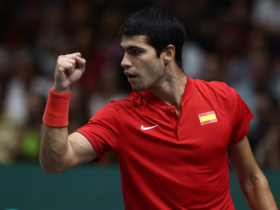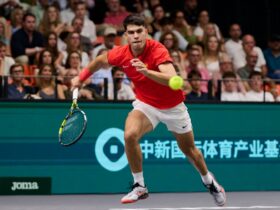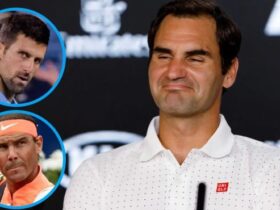NEW YORK—Jessica Pegula is 30 years old and a late bloomer by the exacting standards of top-flight tennis. Her progress has been orderly and incremental, until a great leap this past fortnight left her playing for the US Open title on a rainy Saturday under the roof of Arthur Ashe Stadium, her first appearance in a Grand Slam final.
In the biggest match of her career, Pegula faced the woman with the biggest game in women’s tennis, Aryna Sabalenka. She lost, in an eye-opening match full of momentum shifts in two tight sets, 7-5, 7-5. It turns out that recording upsets over the WTA’s Top 2 (Pegula eliminated No. 1 Iga Swiatek in quarterfinals) in the same tournament were beyond her grasp—but not by all that much.
“If I can’t take confidence from this, there’s got to be something wrong,” Pegula said in her post-match press conference. “I’ve taken confidence from winning a 250 (level tournament), from winning a (Masters) 1000. . . Multiple ones now. Then to be able to be a Grand Slam finalist, I think that was kind of the last thing for me.”
The breakthrough is especially satisfying for Pegula, who had stalled at the quarterfinal stage in Grand Slam events six times before this week. She asked herself, “Can I make a semi? Can I be a contender to actually win a Grand Slam?”
Her words can easily be taken as expressions of low confidence and self-doubt. But they are those of a realist who has taken nothing for granted—nor lost faith in her abilities. In addition to her obvious athletic gifts, she is by nature a problem solver, patient in the way of all strivers who have hidden reserves of self-belief.
“Honestly, I’ve [never felt that] it was never going to happen, I almost think the opposite,” she said of finding success at a high level on the tour. “I always felt like, ‘You know what? You’ll figure it out eventually. That’s something I’ve always told myself,’ I’ll figure it out one of these times.’ That’s just maybe my quiet kind of confidence that I feel like I always had.”
Mastering emotions and cultivating mental armor are essential to success, but the physical and technical aspects of a sport as demanding as tennis also demand attention—especially for a player like Pegula. She isn’t the most explosive athlete, like a Swiatek, nor a physical specimen, like Sabalenka. Her serve has traditionally been vulnerable. She’s a welterweight, fighting up a few classes.










Leave a Reply